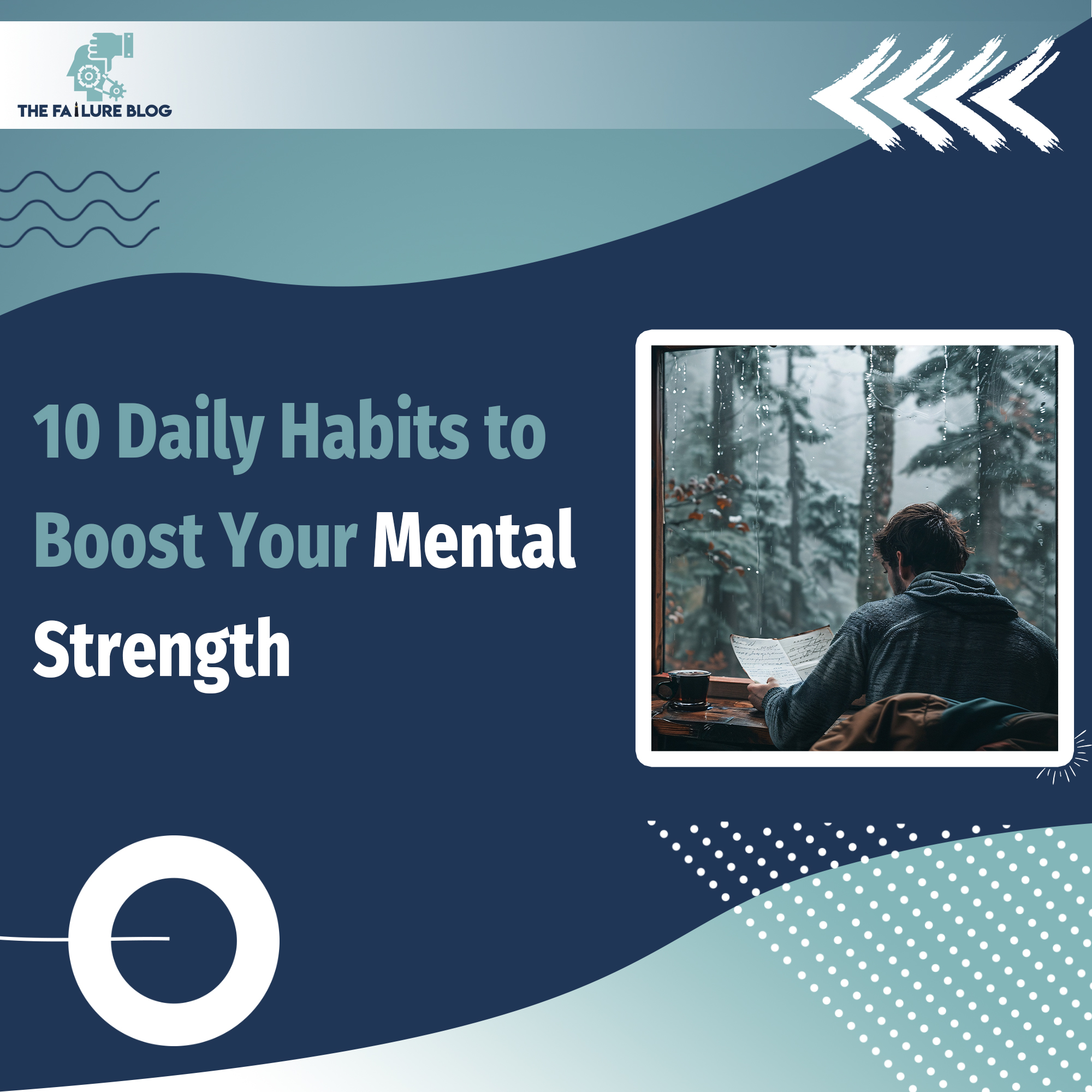
Mental strength isn’t just something you’re born with; it’s something you build over time. It’s like a muscle that gets stronger with regular exercise and self-discipline. Think about how you approach your day-to-day life — from the moment you wake up to when you lay down to rest. Those little daily habits can be a game-changer for your mental well-being. So, if you’re looking to boost your mental strength, here are ten habits that can make a significant difference.
1. Start Your Day with Gratitude
Gratitude might seem like an overused word, but it’s a powerful practice that can significantly impact your mindset. Every morning, take a few minutes to think about three things you’re grateful for. They don’t have to be monumental; even appreciating your morning coffee or the warm sunshine can set a positive tone for the day.
Research shows that gratitude can increase mental resilience. According to a study published in the Journal of Personality and Social Psychology, people who regularly practice gratitude tend to have a more optimistic outlook, experience fewer depressive symptoms, and cope better with stress . The trick is to make this a habit, a natural part of your morning routine, much like brushing your teeth.
2. Embrace Physical Activity
It’s no secret that physical exercise does wonders for your body, but it also plays a crucial role in mental health. Regular exercise releases endorphins, those “feel-good” chemicals that naturally elevate your mood. Aim for at least 30 minutes of moderate exercise most days. Whether it’s a brisk walk, yoga, or a workout session, the key is consistency.
A study by Harvard Medical School revealed that exercise improves memory and thinking skills by promoting new brain cell growth . It’s not about training for a marathon; it’s about making movement a daily ritual that strengthens both body and mind.
3. Practice Mindful Breathing
Ever find yourself spiraling into stress or anxiety? It happens to everyone. A powerful tool to combat this is mindful breathing. This isn’t about complicated meditation techniques; it’s about taking a few moments to focus on your breath, inhaling deeply, and exhaling slowly.
Mindful breathing can reduce anxiety, improve focus, and increase overall mental clarity. According to the American Psychological Association, it encourages the brain to shift from its reactive state (fight-or-flight mode) to a more balanced, thoughtful state . It only takes a few minutes, and you can do it anywhere — during a meeting, while commuting, or even while waiting in line.

4. Nurture Positive Relationships
Humans are social creatures by nature, and nurturing meaningful connections can boost your mental resilience. Surround yourself with people who uplift, inspire, and support you. Regularly reach out to friends, family, or colleagues who encourage positive thinking and provide emotional support.
Positive social interactions are linked to lower levels of anxiety and depression. A report from the Mayo Clinic found that healthy relationships can increase your sense of belonging and self-worth, giving you a more optimistic view of life . So, prioritize relationships that matter to you and make time for genuine connections.
5. Set Boundaries and Learn to Say No
One of the toughest yet most empowering habits to develop is learning to say no. Many people, out of kindness or fear of conflict, end up overcommitting themselves. This can lead to stress, burnout, and feelings of resentment.
Setting boundaries is essential for maintaining mental health. It involves recognizing your limits and communicating them effectively. According to Psychology Today, people who are skilled at setting boundaries are more likely to have healthier relationships and less stress . Remember, saying no to others can often mean saying yes to yourself and your well-being.
6. Cultivate a Growth Mindset
A growth mindset, a concept developed by psychologist Carol Dweck, refers to the belief that abilities and intelligence can be developed through hard work and dedication. People with a growth mindset see challenges as opportunities for growth rather than obstacles.
Practicing this mindset can enhance your ability to handle setbacks and difficulties. A study from Stanford University highlighted that individuals who adopt a growth mindset are more likely to persevere in the face of adversity, demonstrating greater mental toughness . So, the next time you face a challenge, remind yourself that it’s a chance to learn and grow.

7. Limit Exposure to Negative News and Social Media
It’s easy to get sucked into the vortex of negative news and social media, where stories of conflict, disaster, and criticism dominate the space. While staying informed is important, overexposure to such content can negatively impact your mental health.
Set boundaries around your media consumption. Consider allocating specific times of the day for checking news or social media, and stick to it. Research by the American Psychological Association indicates that constant exposure to negative news can increase stress levels and anxiety . Be mindful of what you allow into your mental space.
8. Fuel Your Body with Nutritious Foods
You’ve probably heard the saying, “You are what you eat,” but it goes beyond just physical health. A balanced diet rich in whole foods like fruits, vegetables, lean proteins, and healthy fats can positively affect your mood and mental clarity.
Foods high in omega-3 fatty acids, such as salmon, walnuts, and flaxseeds, have been shown to reduce symptoms of anxiety and depression. A study from the National Institutes of Health found that a diet rich in antioxidants, vitamins, and minerals is linked to a lower risk of depression . Consider every meal an opportunity to nourish not just your body, but your mind too.
9. Practice Self-Compassion
Self-compassion means treating yourself with the same kindness and understanding that you would offer to a friend. It’s about acknowledging your imperfections without harsh judgment. We all make mistakes, but mentally strong people use those moments as opportunities to learn rather than self-criticize.
Research published in the journal Clinical Psychology Review suggests that self-compassion is strongly associated with mental well-being and resilience . The more you practice self-compassion, the more it becomes a habit that supports your mental strength.
10. End Your Day with Reflection
Just as you start your day with gratitude, ending it with reflection can be equally powerful. Take a few moments before bed to review your day. What went well? What challenges did you face, and how did you handle them? What can you do differently tomorrow?
Reflecting helps you gain insights into your behavior and thoughts, promoting self-awareness and growth. A study from the University of Chicago found that regular self-reflection can increase emotional intelligence and improve decision-making skills . It’s a simple habit that, over time, can build a resilient mind.
Conclusion
Building mental strength is not a one-time effort but a continuous process of developing habits that promote resilience, positivity, and self-awareness. By incorporating these daily practices, you can create a solid foundation for mental well-being that will help you navigate life’s ups and downs with confidence and grace.





Leave a Reply